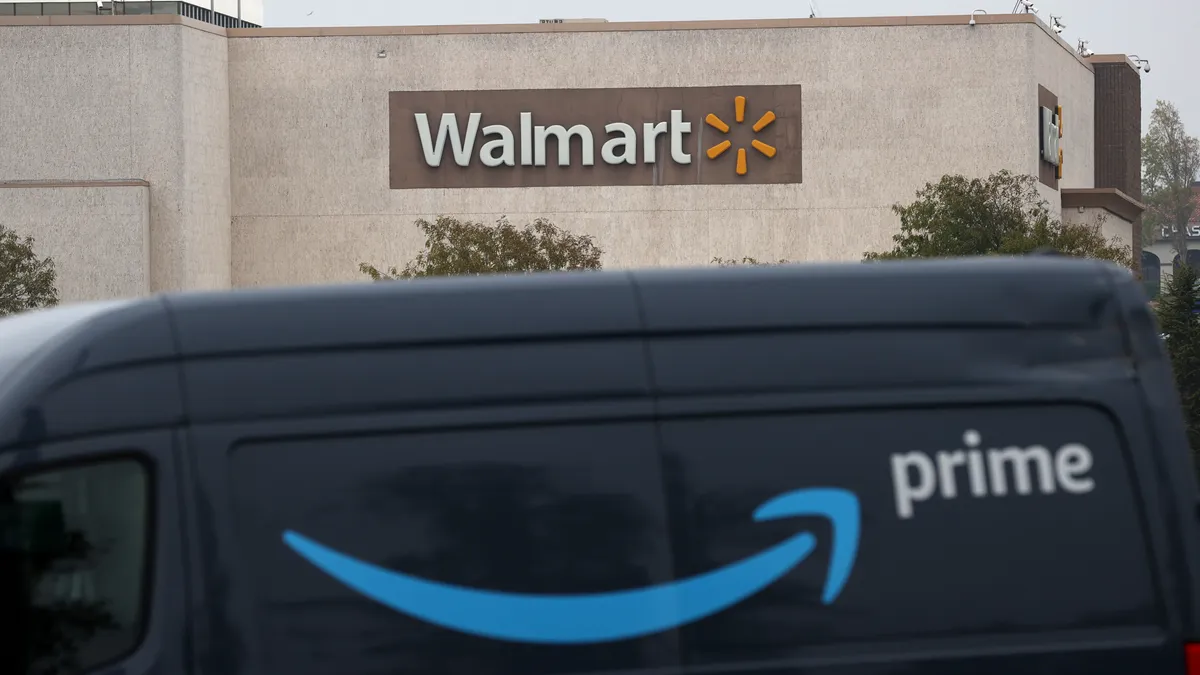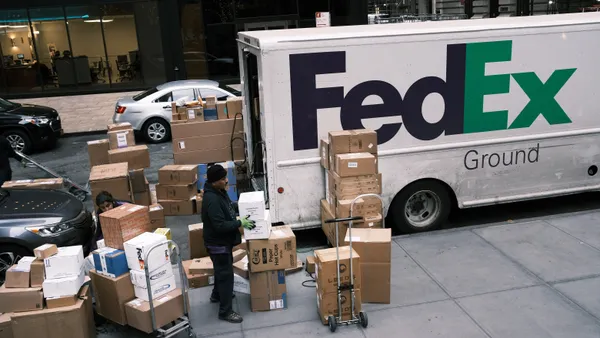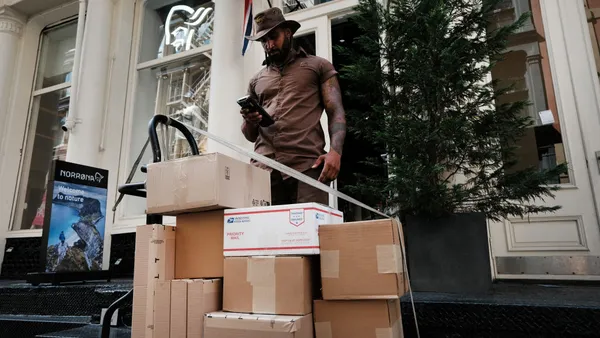Dive Brief:
- Electric vehicle startup Canoo is barred from entering into a deal with Amazon as part of its agreement with Walmart to supply the retail giant with at least 4,500 EVs, a regulatory filing last week showed.
- Canoo cannot design, manufacture or sell EVs to Amazon, and the company is also blocked from any deal that would transfer company control to the e-commerce giant. Any termination of the agreement, which lasts for five years, would end its exclusivity provision, according to the filing.
- Preventing Amazon from getting Canoo delivery vehicles is "a defensive maneuver" by Walmart to protect itself against a competitor, but it's unlikely to draw concern from the e-commerce giant, Rick Watson, founder and CEO of RMW Commerce Consulting, said in an interview. "Amazon is probably more amused than anything that Walmart seems to care so much about it."
Dive Insight:
EV manufacturers are being drawn into the orbit of Walmart and Amazon's continued rivalry. Both companies are looking to scale their logistics networks while advancing toward their sustainability goals, using different mixes of EV makers to get there.
"As much as possible, we are seeking to electrify our last-mile offerings to customers," according to the climate change section of Walmart's ESG report, published April 6.
Amazon has already made headway in its use of EVs. The company delivered more than 20 million packages using electric vehicles to customers in North America and Europe in 2020, according to its most recent sustainability report. It also has an EV order commitment that dwarfs Walmart's deal with Canoo. Amazon ordered 100,000 vans from Rivian to be delivered by 2030, and the e-commerce giant began testing the electric vans on delivery routes in cities last year.
The deal with Rivian also hands sizable influence over to Amazon. Under the agreement, Rivian’s last mile delivery vehicles will be available exclusively to Amazon for the four years following the first delivery, according to the startup's 10-K. Rivian also acknowledged that the relationship "may deter Amazon’s competitors or other third parties from contracting with us."
Walmart, meanwhile, has also reserved 5,000 BrightDrop electric delivery vans and ordered 1,100 Ford E-Transit all-electric vans. Relative to Walmart's 3,800 stores in the U.S., the retailer's Canoo order is "pretty small" and shows its use of EVs in deliveries remains in the experimentation stage, Watson said.
Walmart could expand its EV fleet further if it exercises its option to purchase an additional 5,500 EVs from Canoo as outlined in the agreement. The deal also shows that Walmart plans to take a stake in Canoo via a warrant agreement — if Walmart exercises all its potential shares, it would own more than 20% of the company.
Although restrictive, Walmart and Amazon's purchase agreements are a crucial lifeline for the startup EV makers as they attempt to stay afloat. Rivian posted a $4.7 billion net loss in 2021, while Canoo's net loss was $346.8 million.
"In the logistics space startups typically have had a rough time and often get squeezed into tough deals," wrote Hanns-Christian Hanebeck, founder and CEO of freight management software company Truckl, on LinkedIn. "Obviously [Canoo's] entire future has been predicated on winning this one large customer who has an outsized amount of leverage in the relationship."
Canoo deferred questions from Supply Chain Dive about the exclusivity provision to Walmart, which did not respond to a request for comment.













